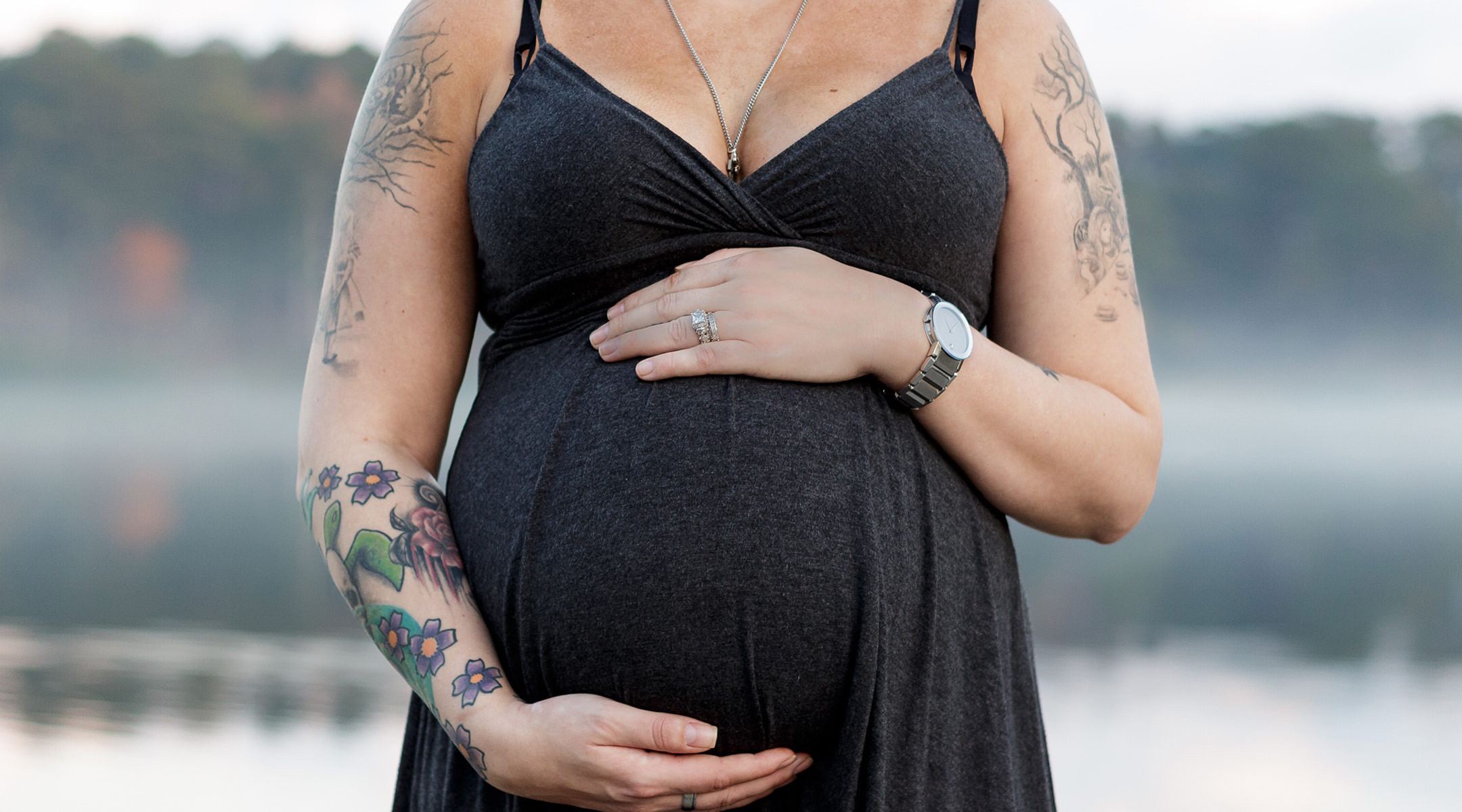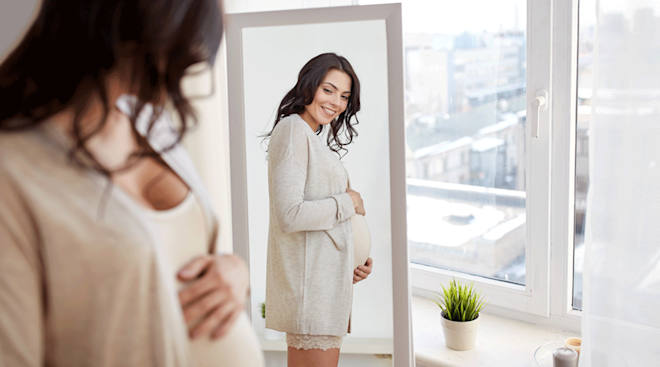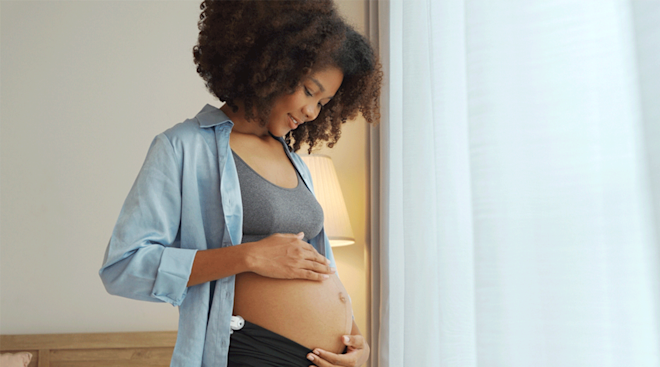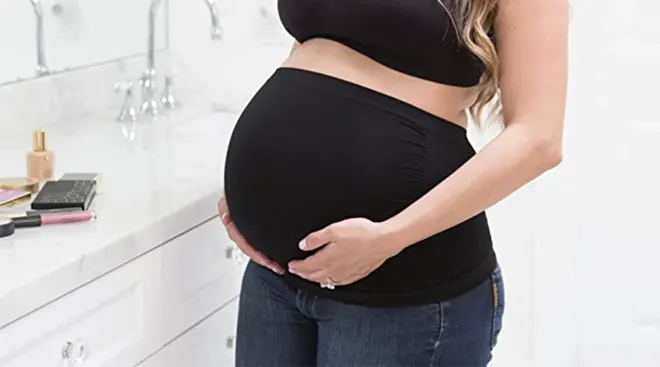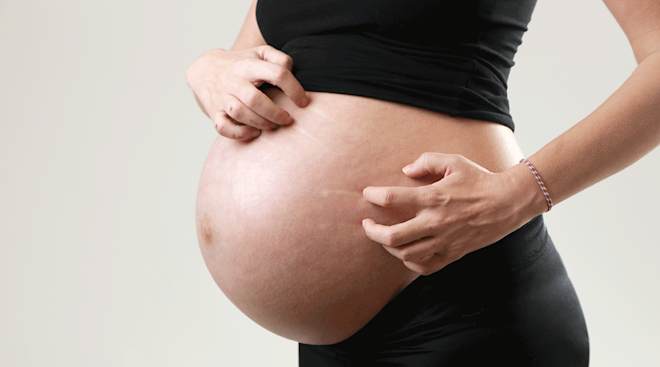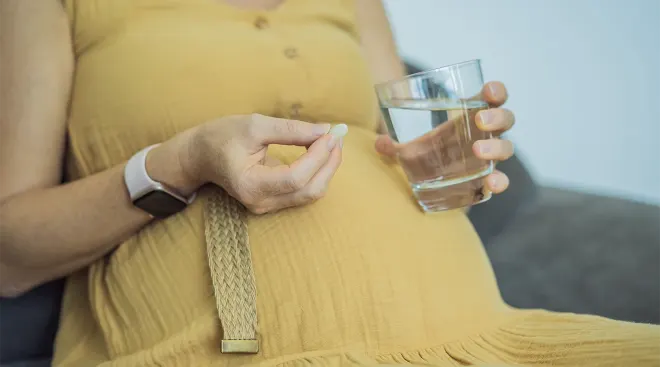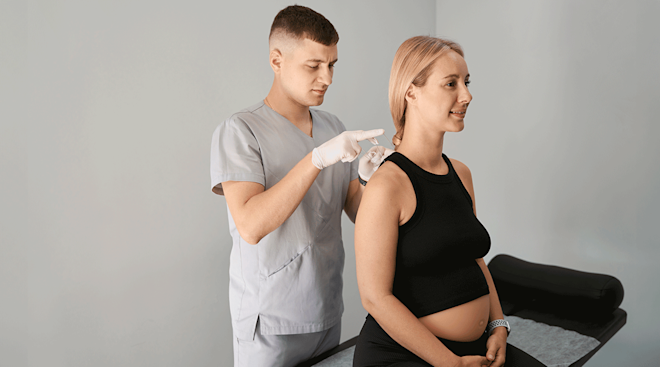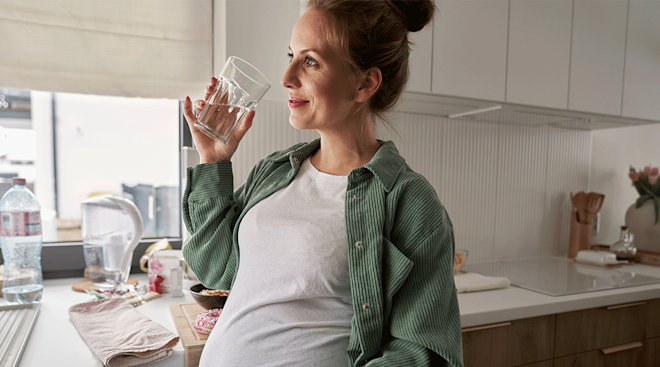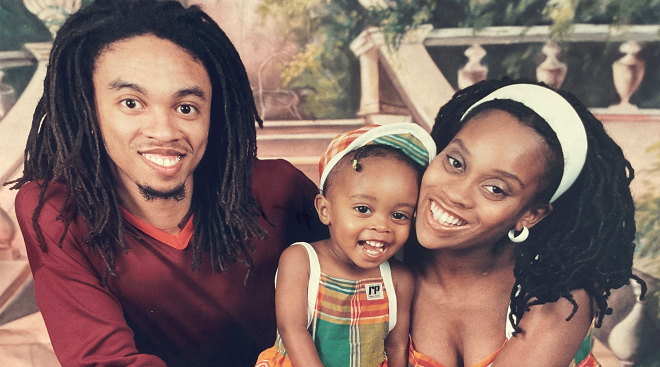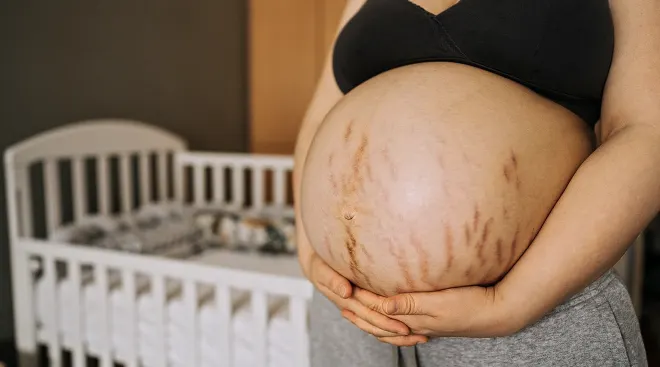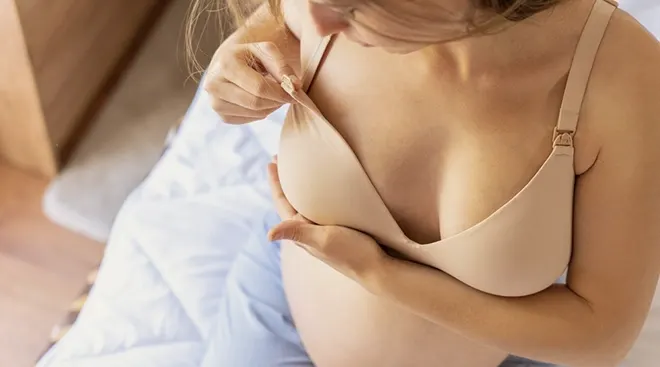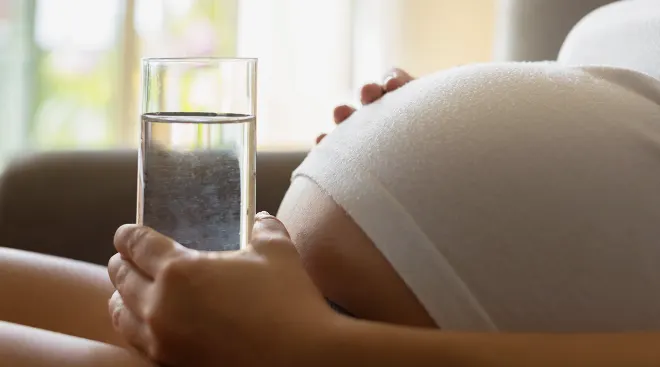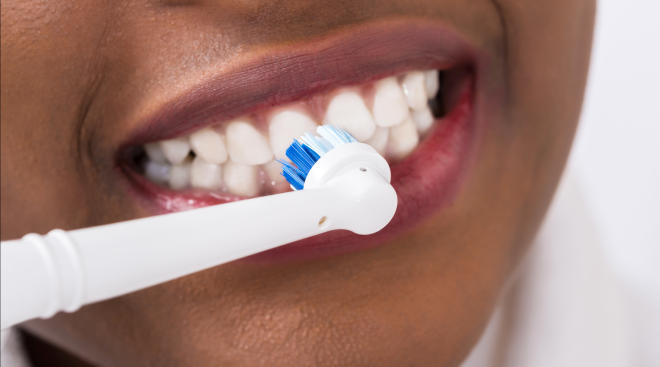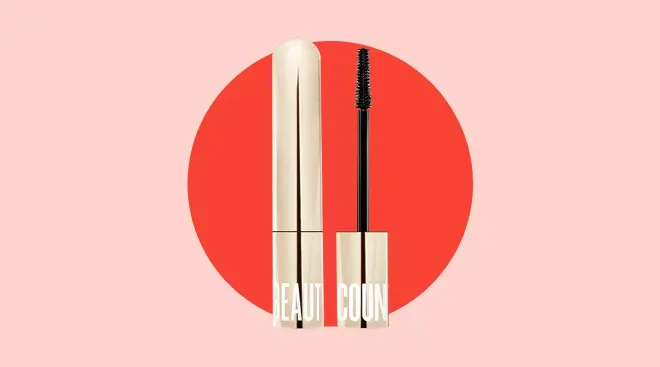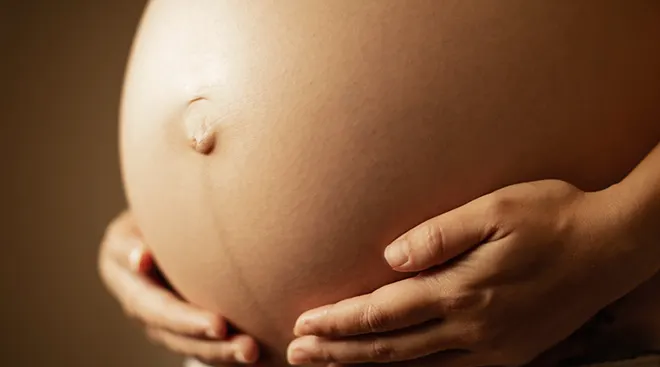
Why Positive Body Image During Pregnancy Is Crucial, According to Experts
Learning to love your body during pregnancy may not only benefit you, but your relationship with baby too, according to researchers at York University.
We get it. Your body almost seems like a stranger to you during the months leading up to baby’s due date. You’re gassy, peeing all the time, have a swollen vagina—the list of the surprising ways your body changes during pregnancy goes on and on. But practicing self-love and appreciating the wonders of your body may be good for you in the long run. And experts can benefit all moms and their future children by picking up on these cues.
Researchers say by assessing a woman’s relationship with her body during pregnancy, they could help predict how well the mother might bond with her unborn baby and her longer-term emotional wellbeing. After analyzing the study’s results, they think it would be beneficial to introduce a standardized method of assessing women’s feelings towards their changing bodies. One such method, the BUMPS method, which was developed by scientists at the University of York and Anglia Ruskin University, is a self-reporting system based on questions relating to satisfaction with appearance, weight gain concerns and the physical burdens of pregnancy.
After surveying more than 600 pregnant women using the BUMPS questionnaire, the findings show women who felt more positively about their body changes in pregnancy were more likely to have better relationships with their partners, lower depression and anxiety scores and were better at interpreting their bodily signals.
Women took the questionnaires during each trimester of pregnancy. Questions ranged from the type of clothes that a woman chose to wear during pregnancy to concerns about the size of their bump, as well as other frustrations they might have over physical appearance or capabilities.
High scores from the questionnaire were a strong indicator of whether a pregnant woman would have a positive attachment to her child. Low scores suggested they may need additional emotional support during pregnancy and after baby is born to monitor for postpartum depression.
“Women are under constant pressure about their appearance and during pregnancy and after birth is no exception,” says Catherine Preston, BSc, an expert in body image from the University of York’s Department of Psychology. “It is important therefore that pregnancy care is not just about the physical health of the mother and the health of the unborn child, but also about women’s emotional wellbeing, which can give us a lot of important information about how they might react to being a new mom in the longer-term.”
Please note: The Bump and the materials and information it contains are not intended to, and do not constitute, medical or other health advice or diagnosis and should not be used as such. You should always consult with a qualified physician or health professional about your specific circumstances.
Navigate forward to interact with the calendar and select a date. Press the question mark key to get the keyboard shortcuts for changing dates.
































